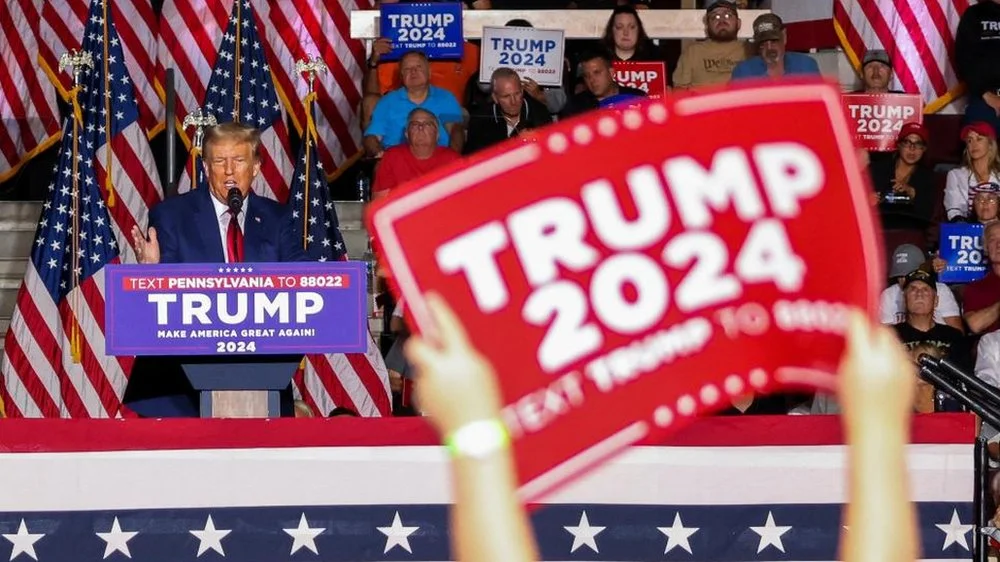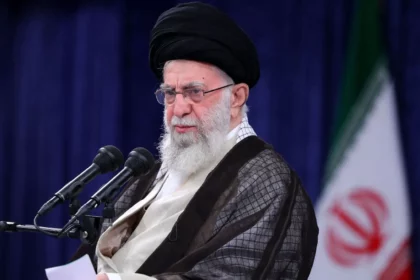As legal troubles continue to swirl around former U.S. President Donald Trump, the question of whether he might face imprisonment for the litany of criminal charges he currently faces remains shrouded in uncertainty.
Trump’s claims that he could potentially be sentenced to a staggering 561 years in prison due to what he terms the “Left’s witch hunts” might be an exaggeration, but the specter of a jail term looms over him should any of the three ongoing court cases result in convictions.
Interestingly, while Trump’s courtroom demeanor is relatively subdued, he reserves his characteristic outspokenness for public forums where he seeks to sway the court of public opinion. It’s a strategy that seems geared toward securing a verdict from the court of voters – tens of millions strong – rather than a conventional jury of twelve. In his view, the decision will be rendered not within the confines of a courtroom, but rather at the ballot box.
A recent incident at a Republican dinner in Iowa, where former congressman Will Hurd was jeered off stage for suggesting that Trump’s presidential bid is fundamentally motivated by a desire to avoid jail time, raises an intriguing point. Could there be some truth to this assertion?
Trump, true to form, has masterfully intertwined his election campaign with his legal woes. The charges against him have become a central pillar of his campaign narrative. In his speeches, he paints himself as a target of persecution by the establishment or the so-called “deep state,” asserting that these forces fear his potential resurgence as the U.S. president.
Intriguingly, Trump leverages these charges to solicit funds, sending out fundraising emails that warn, “If these illegal persecutions succeed, if they’re allowed to set fire to the law, then it will not stop with me. Their grip will close even tighter around YOU.” In fact, he has already dipped into campaign donations, reportedly to the tune of over $40 million (£31 million), to cover his mounting legal expenses.
While Trump remains defiant, having pleaded not guilty to charges stemming from the 2020 election, his strategy of evading legal quandaries through his presidential aspirations could soon become logistically challenging. His planned campaign events may clash with court appearances, a balancing act that becomes increasingly complex when trials are underway.
Despite having access to a private plane that could facilitate travel, coordinating his legal obligations with campaign commitments is no small feat. Trump’s assertion that he will continue his campaign, even from behind bars, raises intriguing questions about the feasibility of such a scenario.
Moreover, he has already signaled his intent to leverage the powers of the presidency, should he be reelected, to potentially quash ongoing prosecutions or even pardon himself for any convictions.
The upcoming months promise a complex interplay between legal proceedings and political ambitions. Trump’s legal battles are set to kick off with trials scheduled in New York in March, Florida in May, and Washington at a later date. While each indictment thus far seems to have boosted his poll ratings and solidified his grip on the Republican Party, a general election against Joe Biden, coupled with daily revelations of evidence against him in court, could change the dynamics significantly.
In the end, it’s Donald Trump himself who is setting the terms of the debate, ensuring that the spotlight remains firmly on him. As the legal drama unfolds, economic policy discussions may well take a back seat to the captivating saga of the “Trump trial cavalcade.”




